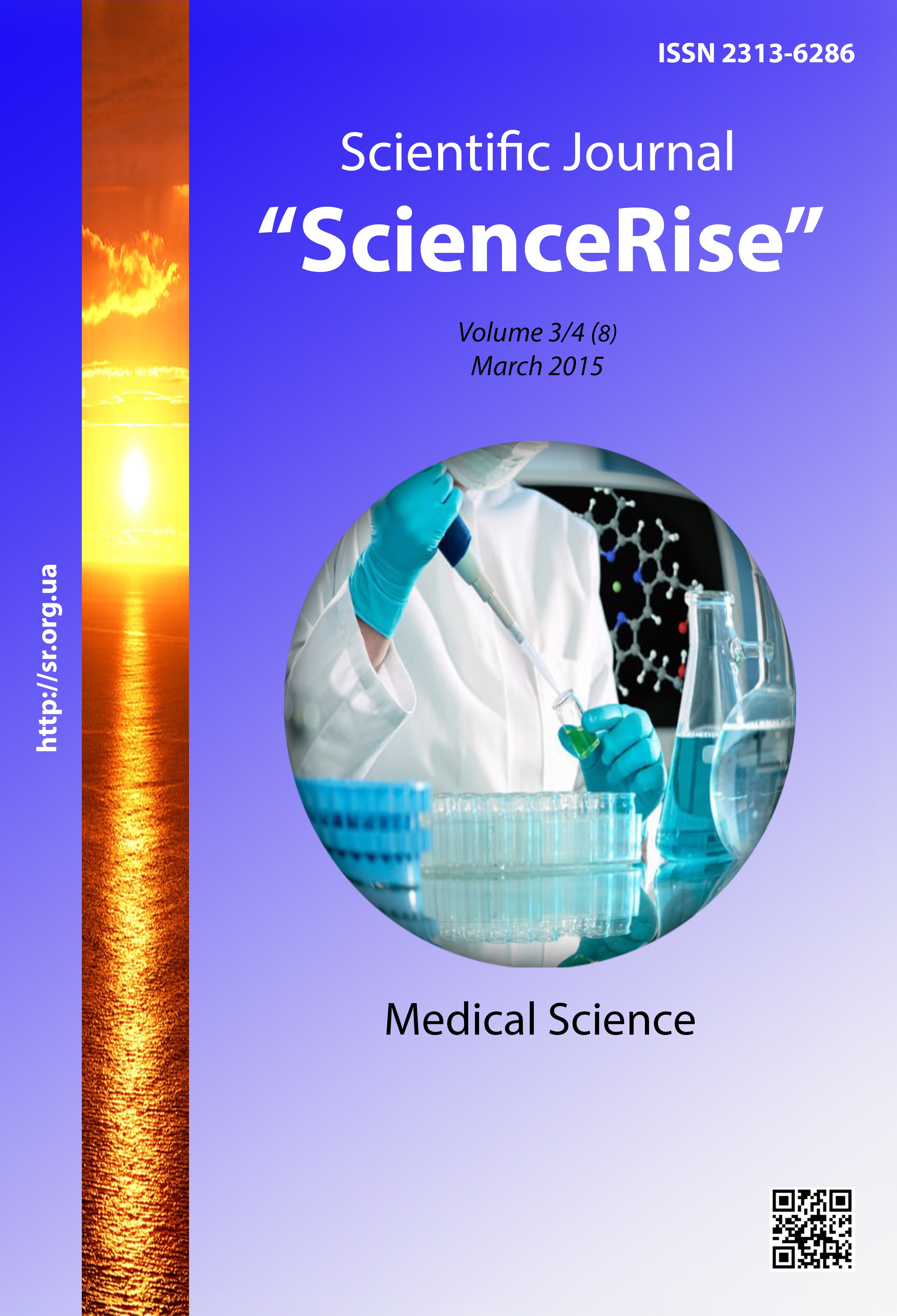Современная стратегия лечения гиперхолестеринемии
DOI:
https://doi.org/10.15587/2313-8416.2015.39266Ключові слова:
ишемическая болезнь сердца, семейная гиперхолестеринемия, статины, моноклональные антитела к пропротеин конвертазе субтилизин/кексин типа 9Анотація
В статье рассмотрены основные факторы сердечно-сосудистого риска, в частности гиперхолестеринемия, у больных ишемической болезнью сердца, приведена сравнительная характеристика эффективности статинов, описаны факторы, определяющие непереносимость и недостаточную эффективность стандартной гипохолестеринемической терапии. С точки зрения генетики рассмотрено перспективное направление научных исследований по разработке моноклональных антител к пропротеин конвертазе субтилизин/кексин типа 9, их влияние на показатели липидного профиля у пациентов высокого риска.
Посилання
Steg, P. G., Ferrari, R., Ford, I. et al. CLARIFY Investigators (2012). Heart rate and use of beta-blockers in stable outpatients with coronary artery disease. Public Library of Science One, 7 (5), 362–384. doi: 10.1371/journal.pone.0036284
Reiner, Ž., Catapano, A. L., Backer, G., Graham, I. et al. (2011). ESC/EAS Guidelines for the management of dyslipidaemias: The Task Force for the management of dyslipidaemias of the European Society of Cardiology (ESC) and the European Atherosclerosis Society (EAS). European Heart Journal, 32 (14), 1769–1818. doi: 10.1093/eurheartj/ehr158
Montalescot, G., Sechtem, U., Achenbach, S. et al. (2013). 2013 ESC guidelines on the management of stable coronary artery disease. The Task Force on the management of stable coronary artery disease of the European Society of Cardiology. European Heart Journal, 34 (38), 2949–3003. doi: 10.1093/eurheartj/eht296
Baigent, C., Blackwell, L., Emberson, J. et. al. (2010). Efficacy and safety of more intensive lowering of LDL cholesterol: a meta-analysis of data from 170,000 participants in 26 randomised trials. Lancet, 376 (9753), 1670–1681. doi: 10.1016/s0140-6736(10)61350-5
Rosenson, R. S. (2004). Current overview of statin-induced myopathy. The American Journal of Medicine, 116 (6), 408–416. doi: 10.1016/j.amjmed.2003.10.033
Humphries, S. E., Whittall, R. A., Hubbart, C. S., Maplebeck, S., Cooper, J. A. (2006). Familial Hyperlipidaemia Register Group and Scientific Steering Committee. Genetic causes of familial hypercholesterolaemia in patients in the UK: relation to plasma lipid levels and coronary heart disease risk. Journal of Medical Genetics, 43 (12), 943–949. doi: 10.1136/jmg.2006.038356
Goldstein, J. L., Brown, M. S. (2009). The LDL receptor. Arteriosclerosis Thrombosis and Vascular Biology, 29 (4), 431–438. doi: 10.1161/atvbaha.108.179564
Lambert, G., Sjouke, B., Choque, B., Kastelein, J. J. P., Hovingh, G. K. (2012). The PCSK9 decade. Journal of Lipid Research, 53 (12), 2515–2524. doi: 10.1194/jlr.r026658
Awan, Z., Seidah, N. G., MacFadyen, J. G., Benjannet, S., Chasman, D. I., Ridker, P. M., Genest, J. (2011). Rosuvastatin, Proprotein Convertase Subtilisin/Kexin Type 9 Concentrations, and LDL Cholesterol Response: the JUPITER Trial. Clinical Chemistry, 58 (1), 183–189. doi: 10.1373/clinchem.2011.172932
Dias, C. S., Shaywitz, A. J., Wasserman, S. M. et al. (2012). Effects of AMG 145 on low-density lipoprotein cholesterol levels: results from 2 randomized, double-blind, placebo-controlled, ascending-dose phase 1 studies in healthy volunteers and hypercholesterolemic subjects on statins. Journal of the American College of Cardiology, 60, 1888–1898.
Giugliano, R. P., Desai, N. R., Kohli, P., Rogers, W. J., Somaratne, R., Huang, F. et. al. (2012). Efficacy, safety, and tolerability of a monoclonal antibody to proprotein convertase subtilisin/kexin type 9 in combination with a statin in patients with hypercholesterolaemia (LAPLACE-TIMI 57): a randomised, placebo-controlled, dose-ranging, phase 2 study. The Lancet, 380 (9858), 2007–2017. doi: 10.1016/s0140-6736(12)61770-x
Koren, M. J., Scott, R., Kim, J. B., Knusel, B., Liu, T., Lei, L. et. al. (2012). Efficacy, safety, and tolerability of a monoclonal antibody to proprotein convertase subtilisin/kexin type 9 as monotherapy in patients with hypercholesterolaemia (MENDEL): a randomised, double-blind, placebo-controlled, phase 2 study. The Lancet, 380 (9858), 1995–2006. doi: 10.1016/s0140-6736(12)61771-1
McKenney, J. M., Koren, M. J., Kereiakes, D. J., Hanotin, C., Ferrand, A.-C., Stein, E. A. (2012). Safety and Efficacy of a Monoclonal Antibody to Proprotein Convertase Subtilisin/Kexin Type 9 Serine Protease, SAR236553/REGN727, in Patients With Primary Hypercholesterolemia Receiving Ongoing Stable Atorvastatin Therapy. Journal of the American College of Cardiology, 59 (25), 2344–2353. doi: 10.1016/j.jacc.2012.03.007
Sullivan, D., Olsson, A. G., Scott, R., Kim, J. B., Xue, A., Gebski, V. et. al. (2012). Effect of a Monoclonal Antibody to PCSK9 on Low-Density Lipoprotein Cholesterol Levels in Statin-Intolerant Patients. Journal of the American Medical Association, 308 (23), 2497–2506. doi: 10.1001/jama.2012.25790
Raal, F., Scott, R., Somaratne, R., Bridges, I., Li, G., Wasserman, S. M., Stein, E. A. (2012). Low-Density Lipoprotein Cholesterol-Lowering Effects of AMG 145, a Monoclonal Antibody to Proprotein Convertase Subtilisin/Kexin Type 9 Serine Protease in Patients With Heterozygous Familial Hypercholesterolemia: The Reduction of LDL-C With PCSK9 Inhibition in Heterozygous Familial Hypercholesterolemia Disorder (RUTHERFORD) Randomized Trial. Circulation, 126 (20), 2408–2417. doi: 10.1161/circulationaha.112.144055
Roth, E. M., McKenney, J. M., Hanotin, C., Asset, G., Stein, E. A. (2012). Atorvastatin with or without an Antibody to PCSK9 in Primary Hypercholesterolemia. New England Journal of Medicine, 367 (20), 1891–1900. doi: 10.1056/nejmoa1201832
Stein, E. A., Mellis, S., Yancopoulos, G. D. et al. (2012). Effect of a monoclonal antibody to PCSK9 on LDL cholesterol. New England Journal of Medicine, 366 (25), 1108–1118. doi: 10.1056/nejmc1204929
Schwartz, G. G., Bessac, L., Berdan, L. G., Bhatt, D. L., Bittner, V., Diaz, R. et. al. (2014). Effect of alirocumab, a monoclonal antibody to PCSK9, on long-term cardiovascular outcomes following acute coronary syndromes: Rationale and design of the ODYSSEY Outcomes trial. American Heart Journal, 168 (5), 682–689.e1. doi: 10.1016/j.ahj.2014.07.028
##submission.downloads##
Опубліковано
Номер
Розділ
Ліцензія
Авторське право (c) 2015 Игорь Владимирович Кузнецов

Ця робота ліцензується відповідно до Creative Commons Attribution 4.0 International License.
Наше видання використовує положення про авторські права Creative Commons CC BY для журналів відкритого доступу.
Автори, які публікуються у цьому журналі, погоджуються з наступними умовами:
1. Автори залишають за собою право на авторство своєї роботи та передають журналу право першої публікації цієї роботи на умовах ліцензії Creative Commons CC BY, котра дозволяє іншим особам вільно розповсюджувати опубліковану роботу з обов'язковим посиланням на авторів оригінальної роботи та першу публікацію роботи у цьому журналі.
2. Автори мають право укладати самостійні додаткові угоди щодо неексклюзивного розповсюдження роботи у тому вигляді, в якому вона була опублікована цим журналом (наприклад, розміщувати роботу в електронному сховищі установи або публікувати у складі монографії), за умови збереження посилання на першу публікацію роботи у цьому журналі.

